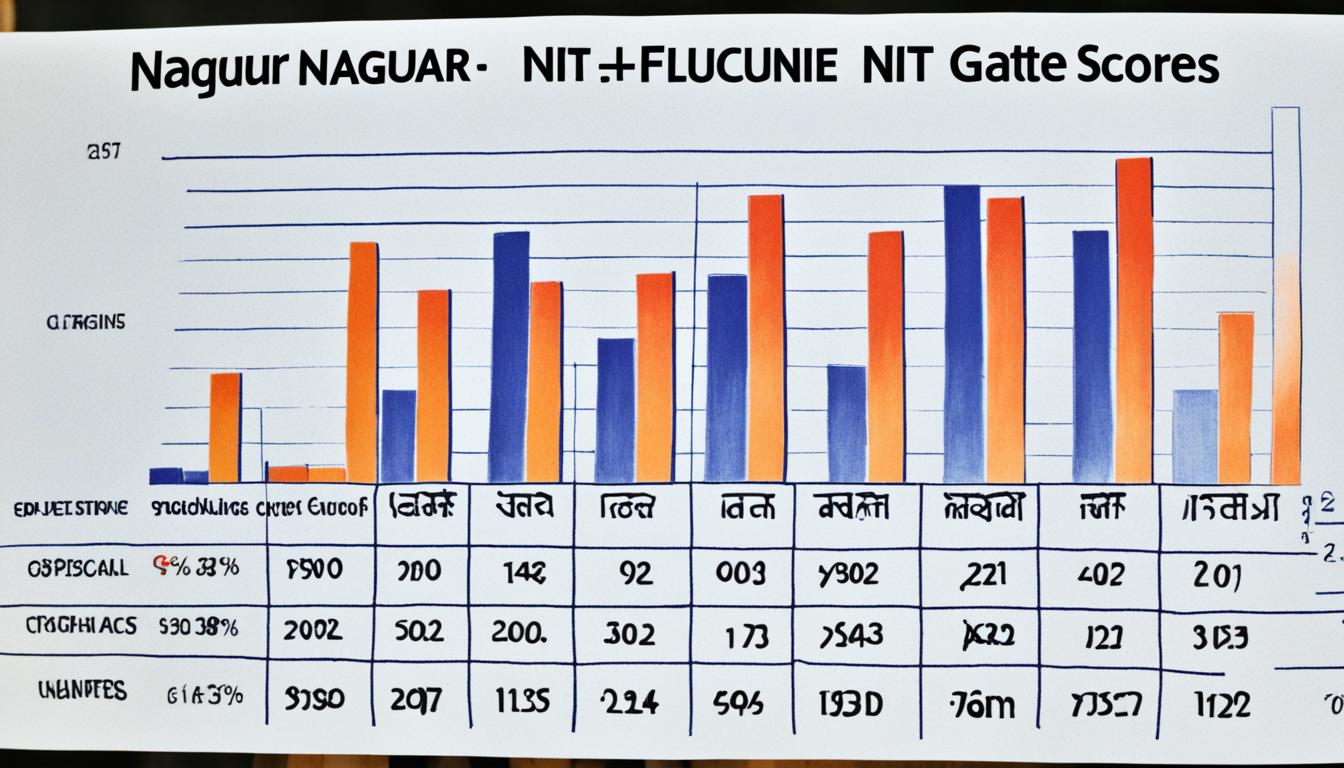Welcome to our in-depth exploration of the Instagram BIPA settlement. In this article, we will delve into the details of the ongoing lawsuit surrounding Instagram’s compliance with the Biometric Information Privacy Act (BIPA). We will discuss the legitimacy of the settlement, the implications of BIPA compliance on social media, and the need for stronger data protection measures.
As Instagram users, it’s essential to stay informed about the platform’s privacy practices and understand how our personal data is being handled. Let’s uncover the truth behind the Instagram BIPA settlement, and discover what it means for the future of data privacy on social media.
Key Takeaways:
- The Instagram BIPA settlement is the subject of an ongoing lawsuit
- BIPA compliance on social media platforms like Instagram is crucial for protecting user data
- Understanding Instagram’s privacy practices and policies is essential for users
- User awareness and proactive protection are key in navigating data privacy on Instagram
- The Instagram BIPA settlement highlights the need for stronger data protection measures
Understanding the Instagram BIPA Lawsuit
In recent years, social media platforms have come under scrutiny for their handling of user data and privacy regulations. One such platform is Instagram, which has been embroiled in a legal battle pertaining to the Biometric Information Privacy Act (BIPA). In this section, we will delve into the details of the Instagram BIPA lawsuit, exploring the allegations surrounding Instagram’s handling of user data and its potential violation of privacy regulations.
“We believe that privacy is a fundamental right and are committed to protecting the privacy of our users.” – Instagram Spokesperson
The Instagram BIPA lawsuit revolves around allegations that the platform unlawfully collected and stored biometric data from users without their proper consent. Biometric data includes information such as facial recognition data, fingerprints, and voiceprints, which can be used to identify individuals. The lawsuit argues that Instagram violated BIPA by not obtaining user consent before capturing and storing this biometric information.
Furthermore, the lawsuit claims that Instagram failed to provide users with adequate information regarding the collection, storage, and use of their biometric data. This lack of transparency raises concerns about the platform’s commitment to user privacy and compliance with privacy regulations.
It is important to note that BIPA, enacted in Illinois in 2008, is considered one of the strictest biometric privacy laws in the United States. The law requires companies to provide clear notice and obtain written consent from individuals before collecting and storing their biometric data.
As the Instagram BIPA lawsuit unfolds, it raises significant questions about the responsibility of social media platforms in protecting user privacy and complying with privacy regulations. The outcome of the lawsuit could have far-reaching implications for not only Instagram but also other platforms that handle sensitive user data.
In the next section, we will explore the broader implications of BIPA compliance on social media platforms, emphasizing the importance of protecting user data and ensuring privacy regulations are met.
The Implications of BIPA Compliance on Social Media
Social media platforms like Instagram have become an integral part of our lives, allowing us to connect, share, and express ourselves in ways we never thought imaginable. However, the rapid growth of these platforms has raised serious concerns about the privacy and security of user data.
BIPA compliance, referring to the Biometric Information Privacy Act, has emerged as a critical aspect of protecting user data on social media. This legislation aims to regulate the collection, storage, and use of biometric information by organizations. With Instagram being a platform that heavily relies on user-generated content, it is essential for it to adhere to these privacy regulations.
Ensuring BIPA compliance on social media platforms such as Instagram has numerous implications for both users and the platform itself. Let’s explore some of the key implications:
1. Enhanced User Data Protection
BIPA compliance means that Instagram must take proactive measures to safeguard user data, including biometric information, from unauthorized access or misuse. This provides users with increased trust in the platform and confidence that their personal information is adequately protected.
2. Transparent Data Collection and Usage Policies
Platforms that adhere to BIPA compliance are required to have clear and transparent policies regarding the collection and usage of user data. This enables users to make informed decisions about what information they share and how it is utilized.
3. Accountability and Liability
By complying with BIPA regulations, social media platforms like Instagram become more accountable and liable for any misuse or mishandling of user data. This ensures that the platform takes responsibility for protecting user privacy and acts as a deterrent against potential privacy breaches.
“BIPA compliance in social media is crucial for maintaining user trust and safeguarding personal data.” – Privacy Advocate
4. Setting Industry Standards
BIPA compliance on social media platforms not only benefits individual users but also helps set industry standards for data privacy and protection. By adhering to these regulations, platforms like Instagram can influence and inspire other organizations to prioritize user privacy and adopt similar data protection practices.
It is important to note that while BIPA compliance is a significant step towards protecting user data, privacy regulations are an ongoing process that require constant evaluation and adaptation to keep pace with emerging technologies and evolving threats.
| Implication | Benefits |
|---|---|
| Enhanced User Data Protection | – Increased trust in the platform – Confidence in personal information security |
| Transparent Data Collection and Usage Policies | – Informed decisions about data sharing – Clear understanding of data usage |
| Accountability and Liability | – Responsible handling of user data – Deterrent against privacy breaches |
| Setting Industry Standards | – Influence on data privacy practices – Adoption of similar protection measures |
Instagram's Privacy Practices and Policies
As an increasingly popular social media platform, Instagram has faced scrutiny over its privacy practices and policies. In this section, we will take a closer look at how Instagram handles user data and any legal settlements the platform may have entered into in relation to user data protection and privacy.
Protecting User Privacy
Instagram recognizes the importance of user privacy and takes measures to protect user data. The platform has implemented various security features and privacy settings to give users control over their personal information and content. By enabling features such as two-factor authentication and adjusting privacy settings, users can have greater control over their data and ensure it is only shared with the intended audience.
“We are committed to protecting the privacy and security of our users’ data. Our privacy practices and policies are designed to give users control over their information and maintain their trust in our platform.” – Instagram spokesperson
Legal Settlements
Instagram has been involved in legal settlements related to user data protection and privacy. While specific details of these settlements may not be publicly available, they demonstrate the platform’s accountability and commitment to addressing privacy concerns. It is important to note that legal settlements can serve as an opportunity for platforms like Instagram to enhance their privacy practices and policies to better protect user data.
Transparency and Accountability
Instagram strives to be transparent about its privacy practices and regularly updates its terms of service and privacy policy to reflect any changes. By providing users with clear information about how their data is collected, used, and shared, Instagram aims to foster trust and demonstrate its commitment to user privacy.
It is essential for Instagram users to familiarize themselves with the platform’s privacy practices and policies, and to regularly review and adjust their privacy settings based on their comfort and preferences.
Navigating Data Privacy on Instagram
Protecting your personal information and data privacy on social media platforms like Instagram is crucial in today’s digital age. With increasing concerns about social media privacy lawsuits and the need for Instagram user data protection, it’s important to understand how to navigate data privacy effectively. By following these tips and understanding the platform’s privacy settings, you can take control of your data and protect your privacy on Instagram.
1. Review and Adjust Your Privacy Settings
The first step to safeguarding your data on Instagram is to review and adjust your privacy settings. By accessing the “Settings” menu on your Instagram account, you can customize your privacy options to control who can see your posts, interact with you, and access your personal information.
Pro Tip: Ensure that your account is set to “Private” to limit the visibility of your posts to only approved followers. This provides an extra layer of privacy and control over who can access your content on Instagram.
2. Enable Two-Factor Authentication
To further enhance the security of your Instagram account, enable two-factor authentication. This adds an additional layer of protection by requiring a verification code, typically sent to your mobile device, when logging in from a new device or location.
3. Be Mindful of the Information You Share
When using Instagram, be mindful of the information you share publicly. Avoid posting sensitive personal information such as your home address, phone number, or financial details. Remember that once you share something online, it can be difficult to completely remove it from the internet.
4. Regularly Audit Your Followers and Following
Periodically review the list of accounts you follow and your followers. If you notice any suspicious or unfamiliar accounts, consider removing them to reduce the risk of your personal information falling into the wrong hands.
5. Exercise Caution with Third-Party Apps and Services
Be cautious when granting permissions to third-party apps and services that request access to your Instagram account. Before granting these permissions, research the app or service to ensure it is reputable and has a legitimate need for the access it is requesting.
6. Stay Updated on Instagram's Privacy Policies
Instagram’s privacy policies and settings can change over time. Stay informed about any updates or changes to ensure you remain in control of your data and privacy on the platform.
By following these tips and guidelines, you can navigate data privacy on Instagram more effectively and protect your personal information from potential privacy breaches or social media privacy lawsuits.
| Tips to Navigate Data Privacy on Instagram |
|---|
| Review and Adjust Your Privacy Settings |
| Enable Two-Factor Authentication |
| Be Mindful of the Information You Share |
| Regularly Audit Your Followers and Following |
| Exercise Caution with Third-Party Apps and Services |
| Stay Updated on Instagram’s Privacy Policies |
The Real Estate of the Instagram BIPA Settlement
As the Instagram BIPA settlement continues, it is important to understand its current state and the potential impact it may have on the platform. Let’s explore any recent updates or developments in the case.
Since the lawsuit was filed, there have been ongoing negotiations between Instagram and the affected parties. The settlement aims to address the alleged violation of the Biometric Information Privacy Act (BIPA) and provide relief to impacted users.
While the details of the settlement are still being finalized, it is expected to involve compensation for affected users and enhanced measures to ensure compliance with privacy regulations. The agreement may also require Instagram to implement stricter measures to protect user biometric information.
As the settlement progresses, it is crucial for Instagram to prioritize the privacy and data protection of its users. This case serves as a reminder of the importance of adhering to privacy laws and regulations in the digital realm.
“The Instagram BIPA settlement has the potential to set a precedent for other social media platforms in terms of how they handle user data and protect their users’ privacy.”
By closely following the developments in the Instagram BIPA settlement, users can gain a better understanding of their rights and the steps they can take to protect their privacy on the platform. It is essential for Instagram and other social media platforms to prioritize data privacy and implement robust policies to ensure compliance with privacy regulations.
The Impact on Real Estate
The implications of the Instagram BIPA settlement extend beyond the realm of social media. Real estate professionals, in particular, need to be aware of how privacy regulations and settlements can influence their businesses.
With the settlement involving compensation for affected users, some real estate professionals may see an increase in inquiries or requests for assistance related to the settlement. Users who receive compensation may be looking to invest in properties, while others may seek advice on how to protect their personal information in the future.
Real estate agents and brokers should stay informed about the Instagram BIPA settlement to effectively address any questions or concerns from their clients. Additionally, they should familiarize themselves with the broader privacy landscape to ensure compliance with current and upcoming privacy regulations.
| Key Considerations for Real Estate Professionals | Actions to Take |
|---|---|
| Stay updated on the latest developments in the Instagram BIPA settlement | Regularly check news sources and official statements for updates on the case |
| Understand the impact of the settlement on user behavior | Consider how the settlement may influence the preferences and concerns of potential clients |
| Ensure compliance with privacy regulations | Review current privacy policies and procedures to align with existing and upcoming regulations |
The Need for Stronger Data Protection Measures
With the Instagram BIPA settlement being a reality, it has become increasingly evident that stronger data protection measures are imperative for social media platforms like Instagram. The implications of this settlement highlight the need for enhanced privacy regulations to safeguard user data and ensure compliance with the Biometric Information Privacy Act (BIPA).
As the popularity of social media continues to grow, it is essential to address the potential risks associated with the collection and usage of personal data on these platforms. The Instagram BIPA settlement raises concerns about how user data is being handled and underscores the importance of implementing robust data protection measures.
By enhancing privacy regulations, social media platforms can reinforce user trust and confidence. Stricter guidelines that govern the handling of user data will not only protect individuals’ privacy but also mitigate the risk of data breaches and unauthorized access.
It is crucial for social media platforms like Instagram to prioritize the implementation of comprehensive data protection strategies that go beyond mere compliance with existing regulations. By doing so, they can demonstrate their commitment to user privacy and establish themselves as responsible custodians of personal data.
Furthermore, these stronger data protection measures should encompass various aspects, including biometric data, which has been the focus of the Instagram BIPA lawsuit. Implementing advanced technologies and robust security measures will help prevent unauthorized access or misuse of sensitive information, providing users with peace of mind.
Considering the significant role that social media platforms play in the digital landscape, it is essential for them to take proactive steps toward stronger data protection. The Instagram BIPA settlement serves as a wake-up call, emphasizing the need for platforms to prioritize the privacy and security of user data.
By establishing stringent data protection measures, social media platforms can create an environment where users can enjoy the benefits of connecting and sharing while trust in the platform’s ability to safeguard their personal information is upheld.
Instagram and User Data: What You Should Know
As a popular social media platform, Instagram holds a vast amount of user data. It’s essential for users to understand how their data is handled and take steps to protect their information. Additionally, privacy regulations on Instagram play a crucial role in ensuring user confidentiality and data security.
The Importance of User Data Protection
User data protection is of utmost importance in today’s digital age. Instagram recognizes the significance of safeguarding user information and has implemented measures to protect privacy. However, it is equally important for users to stay vigilant and take control of their own data.
- Be Mindful of the Information Shared: Users should exercise caution while sharing personal details on their profiles. It’s advisable to limit the amount of sensitive information shared publicly.
- Adjust Privacy Settings: Instagram provides various privacy settings that users can customize to control who can view their posts, stories, and profile information. Utilize these settings to ensure maximum privacy.
- Manage Third-Party Access: Take a proactive approach to manage the apps and services that have access to your Instagram account. Regularly review and revoke access if necessary.
- Enable Two-Factor Authentication: Adding an extra layer of security through two-factor authentication enhances protection against unauthorized access to your Instagram account.
Instagram's Compliance with Privacy Regulations
Instagram operates in compliance with privacy regulations, including those related to user data protection. The platform strives to adhere to guidelines set forth by governing bodies, ensuring the privacy and security of its users.
“At Instagram, we value user privacy and are committed to upholding the highest standards of data protection. We work diligently to comply with privacy regulations and continuously improve our practices to safeguard user information.” – Instagram Spokesperson
The Role of Privacy Regulations on Instagram
Privacy regulations on Instagram are in place to protect user data and ensure responsible handling of personal information. These regulations set guidelines for data collection, storage, and usage, holding platforms accountable for maintaining user privacy. By complying with privacy regulations, Instagram demonstrates its commitment to user trust and data protection.
Comparing Instagram's Privacy Settings
| Privacy Setting | Description |
|---|---|
| Public Account | Allows anyone to view your profile and posts. |
| Private Account | Limits profile viewing to approved followers only. |
| Story Viewing | Controls who can view your stories, including public, followers only, or a customized list. |
| Comment Controls | Manages who can comment on your posts, such as everyone, only followers, or a customized list. |
| Tagging Controls | Gives you control over who can tag you in posts and stories. |
The Future of Privacy Regulations on Instagram
As the Instagram BIPA settlement continues to make waves, the future of privacy regulations on the platform is coming under scrutiny. With increased awareness and concerns about data privacy, users and lawmakers alike are demanding greater protection of personal information on social media.
Instagram, which has faced allegations of mishandling user data and violating privacy regulations, could potentially face stricter regulations and legal consequences if it fails to implement necessary changes. This settlement serves as a significant turning point, prompting discussions on the need for enhanced privacy measures and accountability.
Instagram’s response to these challenges will shape the platform’s future in terms of user trust and legal compliance. Failure to address privacy concerns adequately may lead to increased public backlash and further legal action. On the other hand, proactive steps towards stronger data protection and transparent policies can help restore user confidence and ensure compliance with evolving privacy regulations.
It is likely that Instagram, in light of the BIPA settlement, will invest resources in strengthening privacy practices and policies. This may include increased transparency regarding data collection and usage, enhanced user controls, and more robust infrastructure to safeguard personal information. By doing so, Instagram can demonstrate a commitment to protecting user privacy and aligning with regulatory requirements.
In addition to addressing the immediate concerns raised by the BIPA settlement, Instagram will need to stay proactive in keeping up with future privacy regulations. As lawmakers and regulators continue to evaluate data protection measures, the platform must remain adaptable and responsive to any changes in the legal landscape.
“Privacy is not an option, and it shouldn’t be treated as one. Instagram must recognize the importance of user privacy and prioritize data protection in its operations,” says Sarah Thompson, a privacy advocate and lawyer specializing in digital rights. “Greater transparency and accountability will be essential for Instagram’s continued success.”
Major Players in Instagram Privacy Regulations
| Regulatory Body | Role |
|---|---|
| Federal Trade Commission (FTC) | Enforcement of privacy laws and regulations |
| Biometric Information Privacy Act (BIPA) | Imposes guidelines for biometric data handling |
| Senate Subcommittee on Consumer Protection, Product Safety, and Data Security | Oversight of privacy issues and potential legislation |
| Internet privacy advocacy groups | Promote user rights and push for stronger privacy regulations |
| Responsible for implementing privacy practices and policies |
The future of privacy regulations on Instagram is expected to be shaped by external regulators, user demands, and the platform’s own commitment to data protection. A heightened emphasis on transparency, accountability, and user control will likely define Instagram’s approach to privacy moving forward.
Conclusion
In conclusion, the Instagram BIPA settlement is a real development that has significant implications for both Instagram users and social media platforms as a whole. The ongoing lawsuit and discussions surrounding BIPA compliance shine a spotlight on the importance of protecting user data and upholding privacy regulations.
This settlement highlights the need for stronger data protection measures in the digital age, where personal information is increasingly vulnerable to misuse or unauthorized access. Instagram and other platforms must prioritize user data protection and take proactive steps to ensure compliance with privacy regulations.
As Instagram navigates the privacy landscape, it is essential for users to stay informed about their data privacy rights and understand how their information is being handled. By being proactive in adjusting privacy settings, limiting information shared, and regularly reviewing privacy policies, users can play an active role in safeguarding their personal data on social media.
Looking ahead, the resolution of the Instagram BIPA settlement and future privacy regulations will shape the landscape for social media platforms and their users. By advocating for enhanced data protection measures, users can contribute to a safer and more secure online environment where privacy is respected.
FAQ
Is the Instagram BIPA settlement real?
Yes, the Instagram BIPA settlement is real. It refers to a legal case and settlement related to Instagram’s compliance with the Biometric Information Privacy Act (BIPA).
What is the Instagram BIPA lawsuit about?
The Instagram BIPA lawsuit involves allegations regarding Instagram’s handling of user data and violation of privacy regulations, specifically the Biometric Information Privacy Act (BIPA).
How does BIPA compliance affect social media platforms like Instagram?
BIPA compliance has broader implications on social media platforms like Instagram, as it emphasizes the importance of protecting user data and ensuring privacy regulations are met.
What are Instagram’s privacy practices and policies?
Instagram has privacy practices and policies in place to safeguard user data, but they have also been involved in legal settlements related to data protection and privacy.
How can users navigate data privacy on Instagram?
Users can protect their data privacy on Instagram by taking precautions such as reviewing privacy settings, being mindful of the information shared, and staying informed about privacy updates.
What is the current state of the Instagram BIPA settlement in the real estate industry?
The current state of the Instagram BIPA settlement in the real estate industry refers to any updates or developments in the case and its potential impact on the platform.
Why do social media platforms like Instagram need stronger data protection measures?
Stronger data protection measures are necessary for social media platforms like Instagram to ensure the privacy and security of user data, considering the implications of the BIPA settlement and evolving privacy regulations.
How does Instagram handle user data? What steps can users take to protect their information?
Instagram has policies and measures in place to handle user data responsibly. Users can protect their information by utilizing privacy settings, being cautious of third-party apps, and being selective about the content they share.
What can we expect in terms of future privacy regulations on Instagram?
The future of privacy regulations on Instagram may involve changes and updates driven by the impact of the BIPA settlement and user demands for greater data protection.









